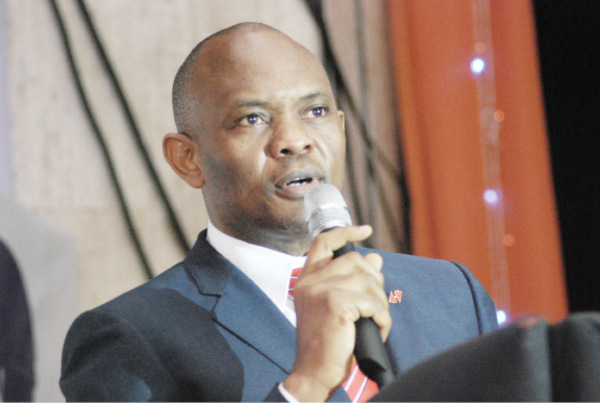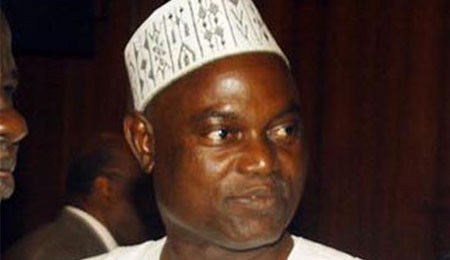Gas Flare: Oil Firms Deny Investors Access to Sites
Efforts by the Federal Government to stop gas flare by utilising associated gas from oil fields for power generation and thereby ending decades of environmental pollution in the Niger Delta may have reached a dead end.
It was gathered that this development followed the refusal of some oil companies operating in Nigeria to grant 13 private investors access to 180 major gas flare sites identified around onshore fields in the oil-rich region.
The deadline for the elimination of gas flare had been shifted several times from the January 1, 1984 date provided in the Associated Gas Re-injection Act No. 99 of 1979 Cap. A25, Laws of the Federation of Nigeria, which was later amended to December 31, 2008.
The World Bank estimates that Nigeria loses $2.5billion yearly to gas flare, apart from the attendant destruction of the environment, through greenhouse gas emission.
Worried over the failure of oil companies to meet the deadlines, the Federal Government pre-qualified 13 third-party investors to execute accelerated gas development projects on major flare points.
The programme, originally scheduled to commence in January 2011, was envisaged to eliminate flare by building gas processing plants for Liquefied Petroleum Gas (LPG), and lean gas for power generation, as well as fertiliser and chemical plants.
Former Minister of Petroleum, Dr. Rilwanu Lukman directed the oil companies to allow the 13 third party investors access to the oil fields, flow stations or well heads to obtain gas that would have otherwise been flared. THISDAY gathered that the agreement was actually signed in August 2009 but opposition by the IOCs forced the government to delay the public announcement until January 2010.
The agreement provides that the investors will strip the gas of liquids to be used as feedstock for petrochemical industry, domestic and auto LPG and the dry gas used for power generation.
Some of the participating companies include: Colechurch, Global Energy Refining, Ibeto Group of Companies, Octopol, Petrolog Nigeria Limited, Process and Industrial Development Nigeria Limited (P&ID) and Tricity. Others include: Turan oil – Seven Energy Consortium, Westcom, Gerfin and Remington.
The government opted for a third party intervention in the elimination of gas flare, following the failure of the oil companies to meet the various deadlines set by the government.
“The Federal Government directed the 13 companies to liaise with the International Oil Companies (IOCs) to identify the major flare sites in the Niger Delta. After their initial opposition, the IOCs played along and 180 major flare sites were identified. But because Dr. Lukman is no longer in the cabinet, the oil companies convinced the current Minister of Petroleum that they could eliminate flare without the involvement of a third party. So, the 13 pre-qualified firms were denied access to these sites, even when some of the consortia have raised $4billion through international loan syndication for these gas projects.
The oil companies have refused to release the flare sites on the flimsy excuse that they have their own plans for elimination of flare. But the same oil companies refused to end flares since the 1980’s when the Federal Government started giving them deadlines,” he said.
However, a top official of the Ministry of Petroleum told THISDAY that following the opposition mounted by the oil companies, the current Minister of Petroleum recently set up an internal committee to look into the gas projects.
He noted that the 13 investors have also contributed to stall the take-off of the projects, as they are fighting over the proposed allocation of flare sites.
“Some of the 13 investors are fighting over the allocation because some of the companies feel that they have greater financial and technical capacity than others and should be allocated more sites. The oil companies have also raised their concern. The committee is still looking at the proposals,” he said.
THISDAY could not ascertain the identities of members of the committee as at press time, but it was gathered that the oil companies have shunned the committee because the members are said to be junior officials of the Ministry.
According to a source close to the deal, the members of the committee are junior officials, who cannot wield considerable influence on the government, and also lack the capacity to summon senior officials of the IOCs for a meeting.
“The oil companies have ignored the committee because the members are junior officials, who cannot summon senior officials of the IOCs for discussions and are also not in a position to influence government’s decisions on the matter,”
he said.
According to the terms of the agreement, which was obtained by THISDAY, Colechurch would be supported by the infrastructure in Koko Free Trade Zone to utilise associated gas for LPG production and to support the nation’s power generation.
The firm is also to invest resources in gas development projects by utilising associated and non-associated gas for LNG production and for supplying the country’s various power plants.
For Global Energy Refining, the MoU provides that the firm would engage in the production of gas for power generation from its existing gas processing plant located in Cawthorne Channel in the Niger Delta, to support government initiatives to improve electricity supply.
Ibeto Group of Companies, Turan oil – Seven Energy Consortium and Octopol are to convert the gas to produce their own LPG for domestic market, while the dry gas component would be made available to various power plants and octopol’s micro LNG scheme.
Source : Thisday








